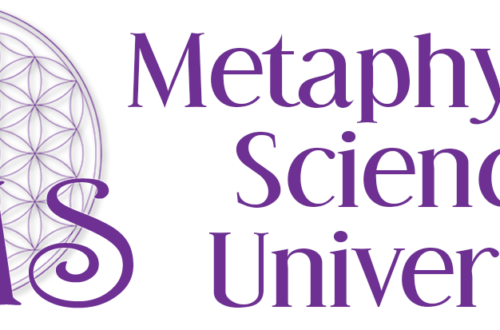Introduction
SumoSearch is a next-generation search engine that redefines how users find information online. By leveraging advanced technology and innovative algorithms, SumoSearch offers an enhanced search experience, delivering highly relevant results with efficiency and precision.
Key Features of SumoSearch
SumoSearch distinguishes itself from traditional search engines with a range of unique features designed to improve accuracy and user experience.
Advanced Contextual Understanding
It goes beyond simple keyword matching by interpreting the context and intent behind search queries. This ensures that users receive results that are not just relevant but also aligned with the specific nuances of their search terms.
Enhanced Natural Language Processing
Incorporating sophisticated natural language processing (NLP), it can decipher complex queries and understand the subtleties of language. This allows the search engine to return results that accurately reflect what users are searching for, even when queries are intricate or ambiguous.
Real-Time Indexing and Updates
It is constantly updating its index, ensuring that the search results are always fresh and up-to-date. This dynamic indexing process allows users to access the most current information available, making SumoSearch a reliable tool for real-time searches.
Personalized Search Experience
One of SumoSearch’s standout features is its ability to tailor search results based on individual preferences. By analyzing a user’s search history, preferences, and location, it delivers personalized results uniquely suited to each user.
Advanced Filtering Options
To further enhance the search experience, it offers advanced filtering options. These filters allow users to refine their search results, making it easier to find exactly what they need without sifting through irrelevant information.
How SumoSearch Operates
SumoSearch’s technology is built on a sophisticated indexing system that processes vast amounts of data from across the web.
The Indexing Process
When a user enters a search query, SumoSearch breaks down the query into its core components, analyzing each part to determine the most relevant results. These results are then pulled from the engine’s extensive database and ranked based on factors such as relevance, website authority, and content quality.
Practical Applications of SumoSearch
Its versatility makes it an invaluable tool across various sectors.
Corporate and Enterprise Search
Businesses can utilize SumoSearch to search through internal documents, databases, and other resources efficiently. Its advanced features make it particularly useful for companies that handle large amounts of data.
E-commerce Integration
E-commerce platforms can benefit from it’s powerful search capabilities by providing customers with a seamless search experience. This enhances customer satisfaction and can lead to increased sales.
Academic Research
Researchers and academics can rely on SumoSearch to locate relevant scholarly articles, papers, and other educational resources quickly. Its advanced filtering and personalized results make it an ideal tool for academic research.
Recommended by LinkedIn
Government and Public Information
Government agencies can use SumoSearch to make public records and information more accessible to citizens. The search engine’s real-time updating and indexing ensure that users always have access to the latest information.
The Technology Behind SumoSearch
Its success is rooted in its sophisticated technological infrastructure, which combines state-of-the-art algorithms and data processing techniques.
Distributed Indexing System
It employs a distributed indexing system that can handle vast amounts of data efficiently. This system breaks down documents into smaller units, known as tokens, which are stored in an optimized format for quick retrieval.
Advanced Ranking Algorithms
The search engine uses a combination of ranking algorithms, including PageRank, term frequency-inverse document frequency (TF-IDF), and cosine similarity. These algorithms work together to assess the relevance of each result, ensuring that the most pertinent information appears at the top of the search results.
Natural Language Processing Techniques
It leverages advanced NLP techniques such as stemming, lemmatization, and named entity recognition. These techniques enhance the search engine’s ability to understand and process complex queries, leading to more accurate and relevant results.
Continuous Learning with Machine Learning
Machine learning algorithms are integrated into SumoSearch’s framework to continuously improve the search engine’s performance. By analyzing user behavior and feedback, it learns over time, becoming more adept at delivering high-quality search results.
Evolution and Competitive Edge of SumoSearch
SumoSearch was developed to address the growing need for more intelligent and efficient search engines. As the volume of online information continues to expand, traditional search engines often fall short in handling complex queries. it emerged as a solution, offering users a more intuitive and comprehensive search experience.
SumoSearch in the Competitive Landscape
SumoSearch operates in a highly competitive market, competing against industry giants like Google, Bing, and DuckDuckGo. It focuses on delivering a more personalized and efficient search experience to differentiate itself. Its unique features, such as advanced contextual understanding and NLP, provide a significant competitive advantage.
Future Prospects for SumoSearch
As technology evolves, it is poised to incorporate even more advanced features, further solidifying its position as a leader in the search engine industry.
Voice Search Integration
Future developments may include integration with voice-activated devices, allowing users to perform searches using voice commands. This would make SumoSearch more accessible and convenient, especially for users on the go.
Augmented Reality Capabilities
It could also venture into augmented reality (AR), providing users with real-time information about their surroundings. For example, pointing a device at a landmark or business could trigger the display of relevant data, such as historical facts or customer reviews.
Deep Learning Enhancements
By incorporating deep learning techniques, it could further refine its understanding of natural language and user intent. This would enhance the accuracy and relevance of search results, providing users with an even better search experience.
Conclusion
SumoSearch is not just another search engine; it is a powerful tool designed to deliver a superior search experience. With its advanced features, cutting-edge technology, and commitment to innovation, SumoSearch is well-positioned to become a dominant player in the search engine industry.






